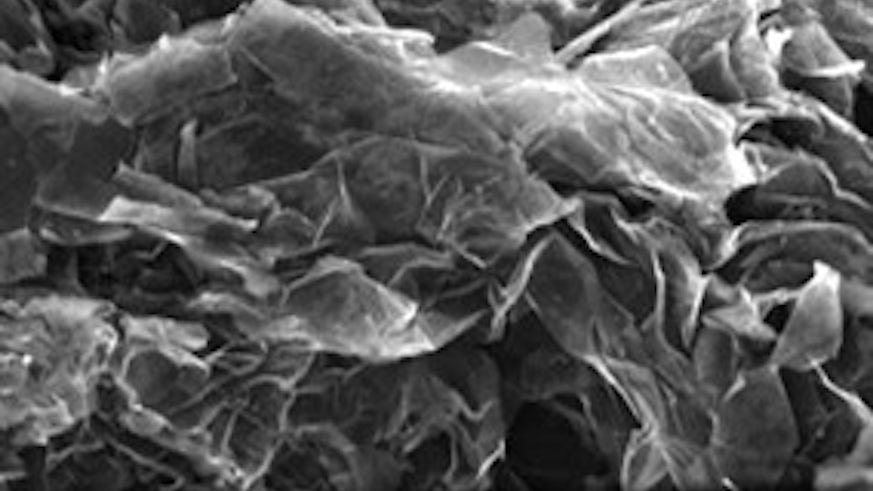Cardiff research on graphene ‘revolutionary’ for industry
15 April 2015

Tests on graphene by a Cardiff University researcher could open up global exploitation of the lightweight 'wonder' material.
Invented a decade ago, graphene was credited with the potential power to revolutionise everything from computer chips to super-light aircraft.
But its development has been held back commercially by the cost and difficulty of large-scale production.
Now research by Dr David Morgan, of Cardiff Catalysis Institute, has developed methods of testing and analysing changes in the material, which is credited with properties of strength, flexibility and electrical conductivity.
Dr Morgan has worked alongside South Wales company Perpetuus to test the characteristics of graphene on an industrial scale – a 'world-first' for the University.
Dr David Morgan, Surface Analysis Manager at Cardiff Catalysis Institute said: "To the best of our knowledge, this is the first analysis of its kind from raw material to final use of the processed material. The development of graphene and related materials is an exciting and ever-expanding field. To verify the physical and chemical changes within the material from start to finish, and to see the incorporation in to a functional material, has been fascinating and serves to highlight further the intriguing properties of this carbon polymorph."
Perpetuus recently signed a preliminary agreement with Japan's Graphene Platform Corporation, allowing the company to produce commercial quantities of the material for a range of industrial uses.
Ian Walters, Business Development Director at Perpetuus, said: "The work of Dr David Morgan is truly revolutionary. What he has managed to achieve is truly world beating: exactly the kind of innovative research which is building an international reputation for Cardiff University."